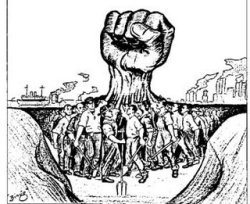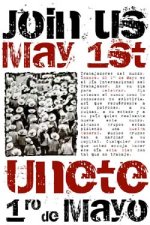How Robert E. Lee’s army treated black soldiers
Robert E. Lee, the statist warrior, is endlessly celebrated at anti-state, anti-war
Lewrockwell.com. It has often been claimed (either from ignorance or dishonesty) that the slaver Lee vigorously opposed slavery
and (by implication) that the Confederate cause shouldn’t be identified as a war for slavery or white supremacy. Here is how Lee, and the Confederate soldiers under his command, treated black Union soldiers.
Northern emancipation also led, by the beginning of 1863, to the recruitment of black troops into the Union army, nearly two hundred thousand men by the end of the war. While the Confederacy lost irreplaceable white manpower, the enemy army expanded, in considerable measure from the ranks of escaped slaves, who formed the vast majority of that new black Union soldiery–a dramatic Union gain that was at the same time an indisputable Southern loss, both symbolically and materially.
Blacks in arms fighting for their own freedom against their former masters were anathema to slaveholders, violating their deepest belief concerning black inferiority, of the sort Lee expressed, for example, when he discussed the endless dependency of the Custis slaves. White men ought to have sole possession of military weapons and martial honor–the very core of manhood. To enlist and arm black men was indeed to turn the world upside down.
In his few comments on black Union troops, Lee expressed the normal Confederate contempt for them. For example, on September 20, 1863, Lee warned Jefferson Davis about the gathering in Union-occupied Norfolk of
negro troops and cavalry,said to be preparing for a raid on the Weldon railroad junction.I do not apprehend that these negro regiments will prove a very formidable body, though unopposed they might do us great damage,Lee concluded. To give another example, on June 26, 1864, Lee proposed to Davis a lightning clandestine attack–what later generations would call a commando raid–into Maryland to free the thousands of Confederate prisoners at Point Lookout.I have understood that most of the garrison at Point Lookout was composed of negroes,Lee argued.I should suppose that the commander of such troops would be poor and feeble. A stubborn resistance, therefore, may not reasonably be expected.A crack company of real and true white Confederate troops ought to be able to achieve the liberation of prisoners who were guarded only by inferior stock. Davis ignored this extremely risky proposal, which was based more on contempt for the black sentinels than on the likelihood of success of a raid so far behind Union lines. Perhaps it was Lee’s racial antipathy that led him to suggest such an audacious plan, one far more characteristic of his thinking before Gettysburg than this late in the war.Confederate hatred for black troops spilled over most lethally on the issue of treatment of prisoners of war. In several instances, Confederate troops shot down black troops rather than accept their surrender. In the two most fully recorded cases–at Poison Springs, Arkansas, and Fort Pillow, Tennessee–several hundred blacks were slaughtered after throwing down their arms; many instances of killing of smaller groups and of black retaliation went unrecorded in official reports. As for Lee’s army, recent scholarship has described the massacre of black troops attempting to surrender at the battle of the Crater, on the Petersburg front on July 30, 1864, in which many Confederate soldiers participated. As North Carolina major Matthew Love described the scene in a letter to his mother, his regiment refused to take prisoners and
such slaughter I have not witnessed upon any battlefield anywhere. Their men were principally negroes and we shot them down until we got near enough and then run them through with the bayonet. … We was not very particular whether we captured or killed them, the only thing we did not like to be pestered burying the heathens.If General Lee knew of this significant incident, he did not respond to it.The capture of black troops, which occurred more frequently than their murder, led to the breakdown of the prisoner-of-war exchange cartel, which had been a system of returning prisoners rather than imprisoning them. This policy shift, inaugurated by the Confederates, which led to the horrors of Andersonville and Northern prisoner stockades late in the war, injured the South far more than the North, because captured Union soldiers could be otherwise replaced–often by blacks–while the Southern manpower pool was nearing exhaustion. The reason for the breakdown was the Confederate insistence that ex-slaves were not free and equal prisoners. If they had escaped from bondage to join the Union army, they would be returned to it when captured.
In the fall of 1864, Robert E. Lee articulated this policy in an exchange of letters with U. S. Grant. On October 1, Lee wrote grant that
with a view of alleviating the sufferings of our soldiers,he proposed an exchange of prisoners to the two armies operating in Virginia,man for man … upon the basis established by the [prior] cartel.Grant immediately inquired about the status of black United States troops.Before further negotiations are had upon the subject I would ask if you propose delivering these men the same as white soldiers?Lee responded thatI intended to include all captured soldiers of the United States of whatever nation or color. Deserters from our service and negroes belonging to our citizens are not considered subjects of exchange.Grant would not accept this, and he told Lee that the United States governmentis bound to secure to all persons received into her armies the rights due to soldiers. This being denied by you in the persons of such men as have escaped from Southern masters induces me to decline making the exchanges you ask.Grant then asked for further clarification from Southern legal officials, and soon Lee made it crystal clear:I have no objection to … exchanging prisoners, man for man, negroes included. Recaptured slaves of Confederate citizens will not be exchanged.Grant insisted that by becoming Union soldiers, escaped slaves had become persons to be treated equally with all other captured troops. After he had been fully briefed by the Richmond authorities, Lee argued back to Grant, quite to the contrary, that Negro slaves
who through compulsion, persuaion, or of their own accord leave their owners and are placed in the military … service of the United States [remain] a species of property. … The capture or abduction of a slave does not impair the right of the owner to such a slave, but that right … attaches to him immediately upon recapture [and] will be restored like other recaptured property to those entitled to them.Lee wrote that he would treat free black Union prisoners just like white men, thus asserting a kind of color blindness. However, as for escaped slaves, the rights of property–the nonpersonhood of black slaves–superseded any consideration of them as Union soldiers. This belief led Lee to employ captured ex-slave Union soldiers in digging trenches around Petersburg, to which Grant responded by putting white Confederate prisoners at the same risk reinforcing his trenches. While arguing that he had not exposed black prisoners to fire, which was not precisely true, Lee withdrew them, without abandoning the proposition that he had every right to use them this way.In response, Grant then withdrew Confederate prisoners from such dangerous duty, and wrote Lee that
I shall always regret the necessity of retaliating for wrong done our soldiers, but regard it as my duty to protect all persons received into the army of the United States, regardless of color or nationality. … All prisoners of war falling into my hands shall receive the kindest possible treatment … unless I have good authority for believing that any number of our men are being treated otherwise. Then, painful as it may be to me, I shall inflict like treatment on an equal number of Confederate prisoners.
In effect, Lee had conceded that he would not use escaped black Union prisonrs as he used other slaves, but neither would he send them back as prisoners of war: things they had been; things they remained. Because of this impasse, the exchange cartel was never repaired and tens of thousands of prisoners of war, on both sides, mainly white, died of cholera and typhoid fever in hellish prison camps.
–Michael Fellman, The Making of Robert E. Lee (2000), pp. 203-208
You should bear in mind that this was a war fought over independence (declared for no reason in particular), and maybe the tariff, too; certainly not, in any case, over slavery or white supremacy. You should also bear in mind that the Lost Cause of the Confederacy was led by honorable Christian cavaliers, fated to a noble defeat in the face of an overwhelming and rapacious Yankee horde.
 Dear Jorge plans to address the nation tonight, a speech wherein he will almost surely attempt to deceive citizens into believing that he does not wish the mass migration from Mexico to continue unabated. He will likely offer some negligible resources for law enforcement and border security — resources which will never materialize — in return for an amnesty program that will grant American citizenship to the Mexican nationals who have helped lower America’s wage rates by 16 percent over the last 32 years.
Dear Jorge plans to address the nation tonight, a speech wherein he will almost surely attempt to deceive citizens into believing that he does not wish the mass migration from Mexico to continue unabated. He will likely offer some negligible resources for law enforcement and border security — resources which will never materialize — in return for an amnesty program that will grant American citizenship to the Mexican nationals who have helped lower America’s wage rates by 16 percent over the last 32 years.

